Ensure every child experiences regular, positive interactions with an adult, including children who appear to prefer solitary play.
Describe aloud what the child is doing (at their language level) by giving a running commentary. This supports children’s language development and play skills.
Reduce questions.
Follow the child’s lead and join in with their play. Allow balance, appropriate to the child, of child-led and free play, as well as adult-directed tasks.
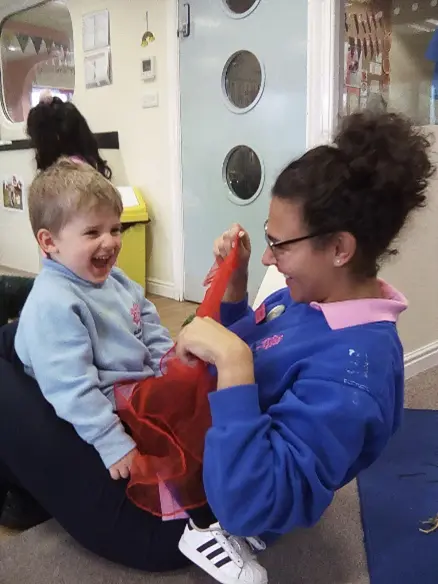
Adults model positive relationships and social skills.
Model eye contact. Be mindful that some children may struggle with making eye contact and find this distressing. Some children may be able to increase their eye contact with a sensitive and gradual approach. If a child finds making eye contact too distressing, do not insist on it.
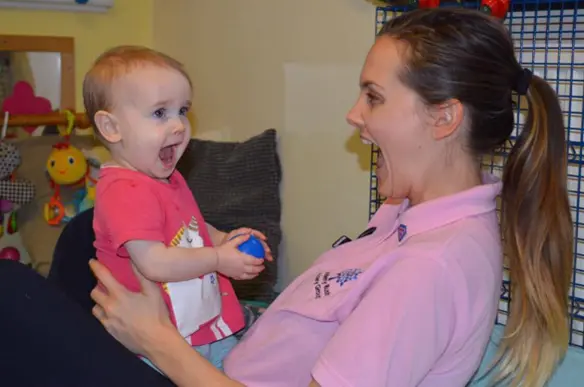
Use turn-taking games and circle time on a regular basis. Ask each child to hold an item (talking object) when they talk so they know whose turn it is to speak and how long they must wait until their turn.
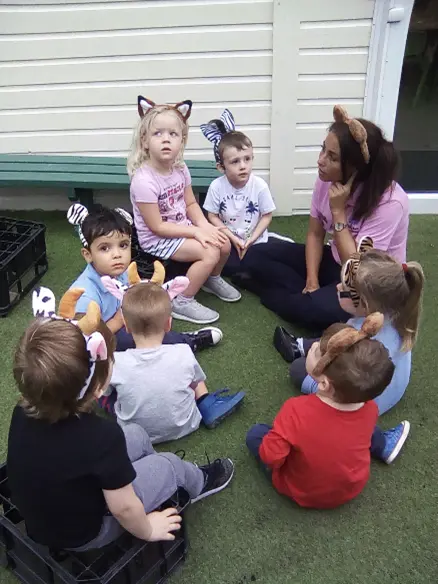
Adults use mind-mindedness (putting yourself in the child’s shoes and seeing the world from their eyes) when responding to incidents or children’s concerns.
Share key messages in the setting using posters e.g. respond, cuddle, relax, play, talk.
Plan opportunities to learn and practise social and emotional skills during structured activities (e.g. role playing).
Use of transitional objects to support children who find it hard to separate from their parents/carers (separation anxiety).
Use stories that generate problem solving around different social situations during circle time.
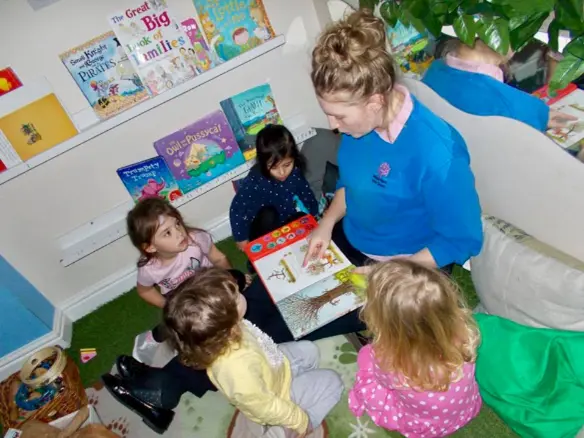
Model and support children to practise the use of these skills (e.g. home corner, shop role play area).
Use role play/verbal rehearsal before activities to reinforce behavioural expectations and reduce anxiety (e.g. how to ask for a turn on the bikes).
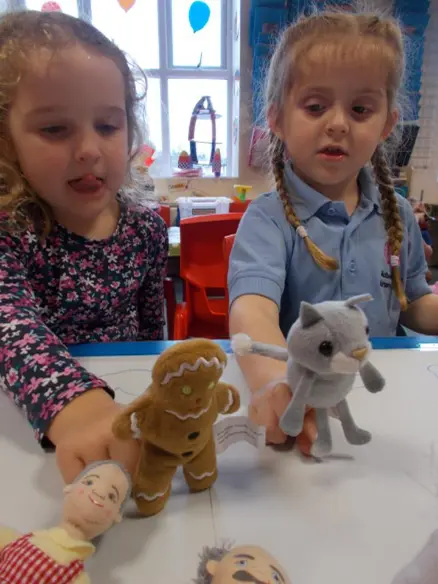
Use of whole group/class interventions to develop social and emotional development (e.g. R time).